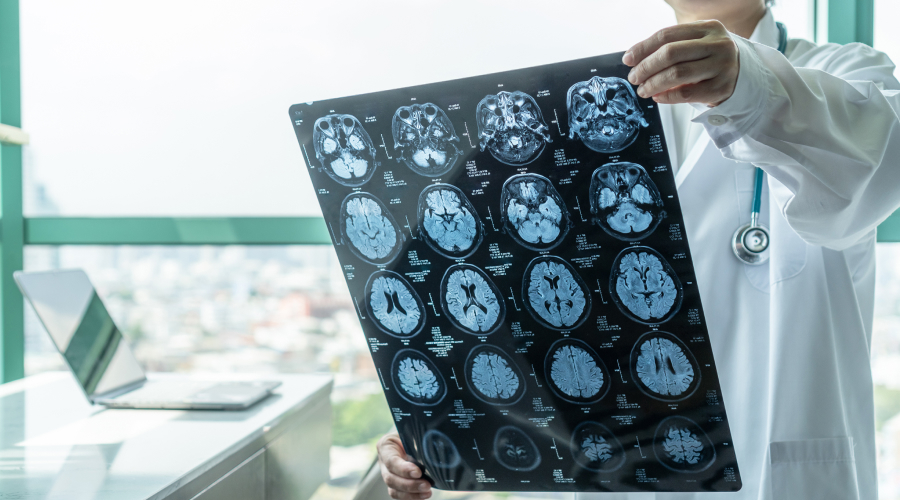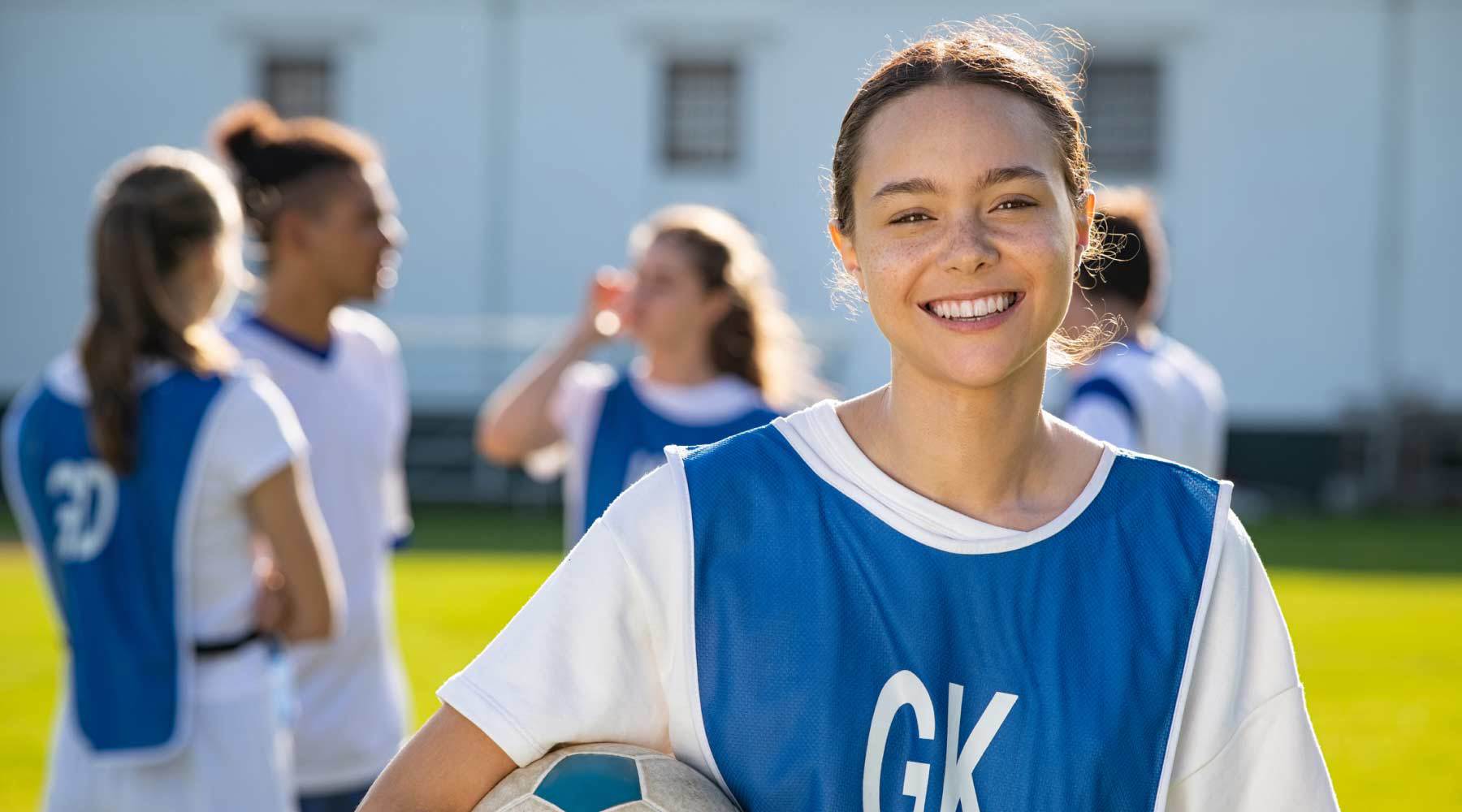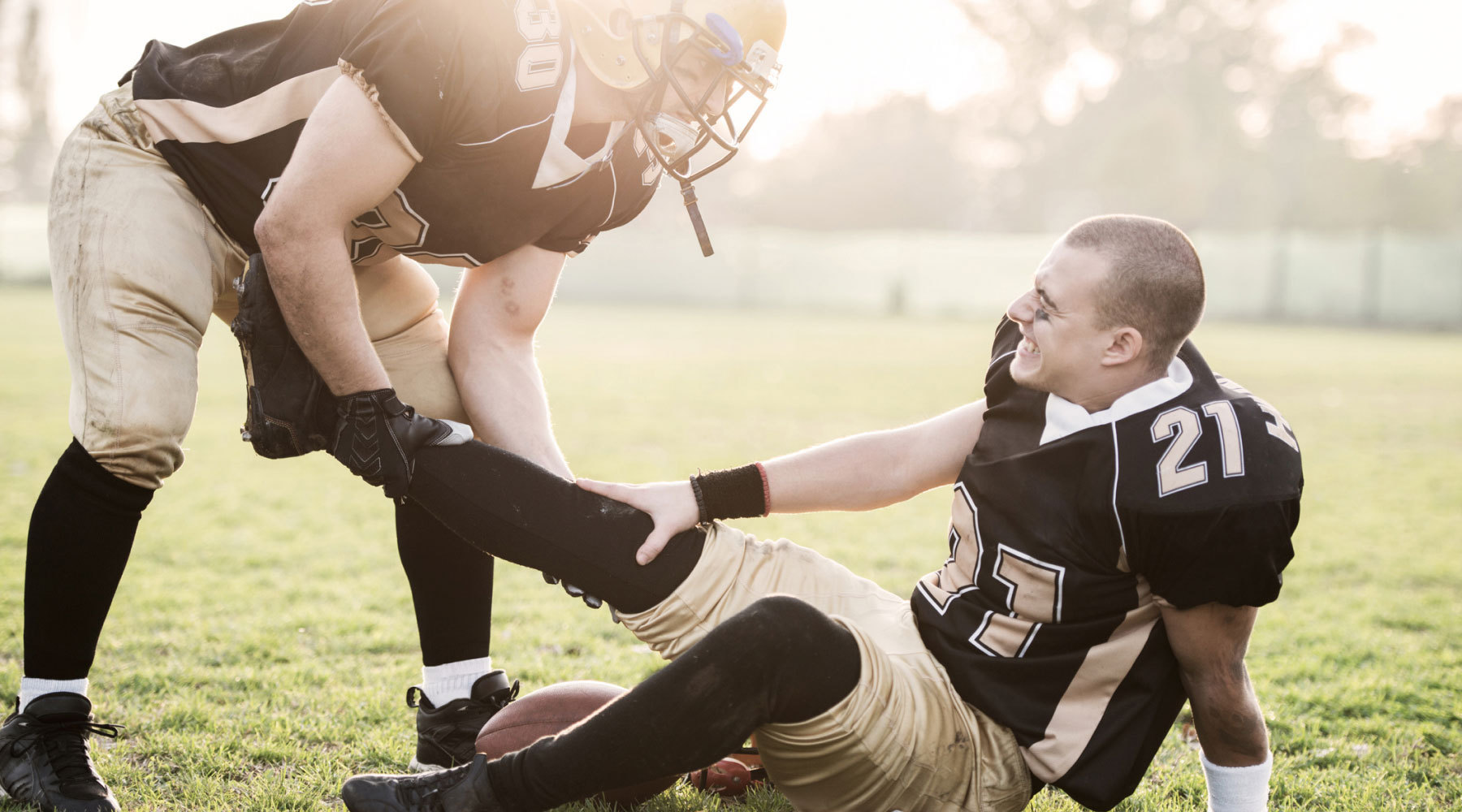
This March, the Access Sports Medicine Team is taking part in National Brain Injury Awareness Month to help remind everyone about the importance of receiving the proper care and treatment for all concussions or head injuries, no matter how minor they might appear.
According to the University of Pittsburgh Brain Trauma Center, there are 800,000 visits to the emergency room for traumatic brain injuries each year, and 300,000 reported sports-related concussions.
“And that’s just of those that get evaluated,” said Dr. Chelsea Backer, a Board-Certified Sports Medicine physician at Access Sports Medicine who specializes in the diagnosis and treatment of all non-operative sports injuries.
A concussion is a disturbance in brain function that occurs following either a blow to the head or the violent shaking of the head. Although most athletes (especially those who play football, soccer, hockey, cheerleading, or lacrosse) who experience a concussion are likely to recover, a number of these individuals may experience chronic cognitive and neurobehavioral difficulties, especially if they suffer from recurrent injuries.
Know the Symptoms of a Concussion or Brain Injury
The signs of a concussion or head injury can vary, but some of the most common ones are:
- Headache or “pressure” in the head
- Nausea or vomiting
- Balance problems or dizziness
- Double or blurry vision
- Sensitivity to light or noise
- Feeling sluggish, hazy, foggy, or groggy
- Concentration or memory problems
- Confusion
- Not “feeling right”
Additionally, others might notice signs and symptoms that include:
- Appears to be dazed or stunned
- Confusion related to school assignments
- Forgets plays
- Is unsure of game, score, or opponent
- Moves clumsily
- Answers questions slowly
- Loses consciousness (even temporarily)
- Shows behavior or personality change
- Forgets events prior to hit (retrograde amnesia)
- Forgets events after a hit (anterograde amnesia)
If you suspect that a student-athlete might have a concussion, they should immediately be taken out of the game and evaluated by either an athletic trainer or experienced healthcare professional.
Seeking treatment and getting the help you need is vital to ensure you don’t prolong any of your symptoms. Access Sports’ Concussion Clinic is proud to use ImPACT concussion testing, which provides baseline and post-injury testing. Fast, easy, and accurate, the information gained from the tests provides trained clinicians with neurocognitive assessment tools as part of determining safe return-to-play or return-to-work plans of action.
“If anyone is ever concerned, they should come to see us so we can evaluate them because I’d rather tell people they’re ok than have them miss something and have prolonged symptoms,” Dr. Backer said. “We have a great team here, and everyone is up to date on treatment steps.”
Treatment Options for Brain Injuries and Concussions
The most important treatment for a concussion is allowing the brain time to heal from the injury. However, concussion treatment is an individual process and will vary depending on the severity of the injury.
Some treatment options may include:
- Rest
- Limiting screen time to reduce stimulation
- Limiting exposure to prescriptions, as well as drugs and alcohol
- Taking a break from sports
- Staying hydrated
- Cutting back on sugar and fried foods
Though uncommon, you may need more comprehensive treatment if your condition is severe, such as occupational therapy or Vestibular rehabilitation and therapy.
By working with a physician, you’ll be able to leverage a treatment plan suited to your unique needs to help you heal better, faster.
One of the important takeaways from this month that should be carried forward is the need to have conversations about brain injuries and that they should be taken seriously.
“When people get injured, they may not want to tell their coaches or their teammates or their parents because they want to be good teammates, and they don’t want to let their team down,” Dr. Backer said. “But I think it’s important to talk about it because if you can’t be your best self or the best athlete, you’re not helping your team.”
Access Sports Medicine gets you back in the game sooner
If you’ve been injured, or are hurt and unsure of the extent of your injury, come visit Access today. We’re here to get you back in the game and ready for what’s next!


